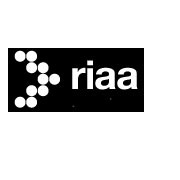 Whitney Harper has already admitted to sharing files illegally on a P2P network when she was 16, just as the RIAA claims. But that didn't stop US District Court Judge Xavier Rodriguez from ruling in her favor last Thursday. You see even though she was clearly infringing on copyrights she says she didn't realize it at the time, and according to Judge Rodriguez that means she can only be penalized for "Innocent Infringement."
Whitney Harper has already admitted to sharing files illegally on a P2P network when she was 16, just as the RIAA claims. But that didn't stop US District Court Judge Xavier Rodriguez from ruling in her favor last Thursday. You see even though she was clearly infringing on copyrights she says she didn't realize it at the time, and according to Judge Rodriguez that means she can only be penalized for "Innocent Infringement."
Clearly he didn't buy that argument though. In his ruling he said “Plaintiffs have not introduced any evidence to contradict that Defendant did not have an understanding of the nature of file-sharing programs and copyright sophisticated enough to have reason to know that her actions infringed Plaintiffs’ copyrights.”
As a result he's limiting the damages to a mere $200 per song, rather than the $750 minimum asked for by RIAA lawyers. However this is only a partial victory. As lawyers like Ray Beckerman have pointed out, the actual damages for a single download of a song amount to less than $1. While RIAA and MPAA lawyers like to claim it's really a fine for making the song available, and therefore actually must account for multiple downloads, that's simply not true under the law.
In fact, the actual reason for such steep fines is the laws weren't written with individual infringement cases in mind. Instead they're intended to punish commercial piracy, with penalties that assume a commercial operation of some kind.
As the labels themselves are quick to point out when defending themselves against infringement claims, damages that are hundreds of times the damage suffered are generally considered unconstitutional. This is an issue that has yet to actually be addressed by the courts in the RIAA's P2P cases, largely because most defendants don't get a chance to argue their cases in court.
As more cases find their way into the courtroom and other entities like universities get involved judges are getting a clearer picture of the RIAA's actual arguments and they don't seem to like them much.













